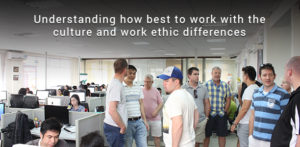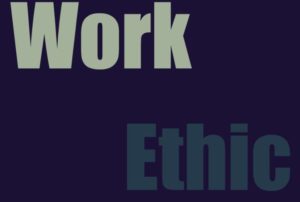
Differences In Work Ethics Between Korea And The West
Working in Korea is a very different experience than what you maybe used to in your home country. It is very important to understand and mindful of these differences. The lack of understanding can lead to disagreements and misunderstandings.
Usually, these disputes occur due to differences in culture, language and work habits. These arguments are not profitable for business and bad for the overall work environment. To avoid these issues, it is very important to understand the work culture and work ethics.
Individualism Vs. Group Mentality
 In western cultures, there is more focus on the individual. An individual’s skills and contributions are considered very important to the company success. However, in Korea the sildenafil nitroglicerina contributions of the whole group or team is of the utmost important. Individual contribution is recognized as long as it leads to the success of the group or team as a whole.
In western cultures, there is more focus on the individual. An individual’s skills and contributions are considered very important to the company success. However, in Korea the sildenafil nitroglicerina contributions of the whole group or team is of the utmost important. Individual contribution is recognized as long as it leads to the success of the group or team as a whole.
Owing to the fact that Korean society is based on Confucianism, the group mentality is predominant. You can find traces of this communal mentality in the language, culture and food. Koreans tend to use words like we, us, our instead of I, me etc. The food is served in a communal pot instead of individual plates. These are a few examples to show that the ‘community’ is more important than the ‘individual’. This brings us to the next point.
Personal And Professional Life
 In the western world, work life balance is a given. Personal and family time is a priority. Generally, the two are kept separate. However, in Korea it’s totally the opposite. Priority is given to work. Professional and personal life are not two separate concepts but essentially one and the same. After-work drinking parties with co-workers or 회식 is very common in Korea. These happen about once or twice a week.
In the western world, work life balance is a given. Personal and family time is a priority. Generally, the two are kept separate. However, in Korea it’s totally the opposite. Priority is given to work. Professional and personal life are not two separate concepts but essentially one and the same. After-work drinking parties with co-workers or 회식 is very common in Korea. These happen about once or twice a week.
These 회식 play a very important role in team building. Usually, Koreans are shy around foreigners due to their limited English skills. For example, in western countries if a conflict arise, it is dealt with directly and openly. However in Korea, if there is an issue at times, they do not sildenafil nitroglicerina communicate with their western counterparts because of the fear of losing face. These drinking parties however, serve as a bridge to better communication. They provide important opportunities to communicate with each other regarding work. Consequently, resulting in a good working environment as a whole.
Age Hierarchy And Work Productivity
 In general, Korean society is based on age hierarchy. Older people get more respect, money and pretty much get their way. The same is true when it comes to the work environment. Age matters more than skill (however this is slowly changing). If you are younger, you are considered the lowest in the pecking order. Everyone follows the oldest person, who is usually the top dog. Hence it hinders productivity.
In general, Korean society is based on age hierarchy. Older people get more respect, money and pretty much get their way. The same is true when it comes to the work environment. Age matters more than skill (however this is slowly changing). If you are younger, you are considered the lowest in the pecking order. Everyone follows the oldest person, who is usually the top dog. Hence it hinders productivity.
For example: if there is a problem (in a company or a classroom) in the west world, a subordinate or a teacher can decide how to best handle the situation and make decisions to resolve the issue. Superiors are only consulted when (absolutely) needed and most of the decisions are made autonomously. This is not the case in Korea. Here you must follow the decision making stages according to the hierarchy. It is true regardless of whether you are working for a company or as a teacher. These stages are backed by plenty of meetings and documentation. Therefore, the decision making process is slower and in many cases inefficient.
Time Is Money Concept Or The Lack There of
 Western work culture is based on the widespread belief that every individual can succeed and prosper financially by working hard.
Western work culture is based on the widespread belief that every individual can succeed and prosper financially by working hard.
Therefore ‘time’ is considered very important. Time is in fact viewed as a tangible asset. People expect to get paid for the time they put in and wasting time is considered just as bad as wasting money. Korean work culture has no such concept.
In Korea, for example, employees are expected to work overtime without getting paid for the extra hours or an ESL teacher is expected to spend about an hour commuting back and forth for a business class but only gets paid for the teaching time and does not receive any compensation for the commute time.
Most Korean employees take it as the ‘norm’ and don’t complain. However, many westerners are generally not happy with this practice.
Communication Style
Most westerners are very sildenafil nitroglicerina direct. Silent moments in conversations are considered uncomfortable. Koreans however are very indirect. People in this culture, value indirect communication. Personal and working relationships are build on personal bonds. Conflict is handled indirectly and “saving face” is important. Understanding the unspoken words, reading in between the lines and comprehending body language are crucial skills for surviving in Korean culture.
These are five major difference between work ethics in the west and Korea. These subtle differences make working in Korea exciting and unique. Be open minded, adaptable and ready for an adventure. Be tolerant and enjoy the dissimilarities. Understand the culture. Hopefully this information can give you a better understanding of Korean work culture and help you to have an amazing experience.
